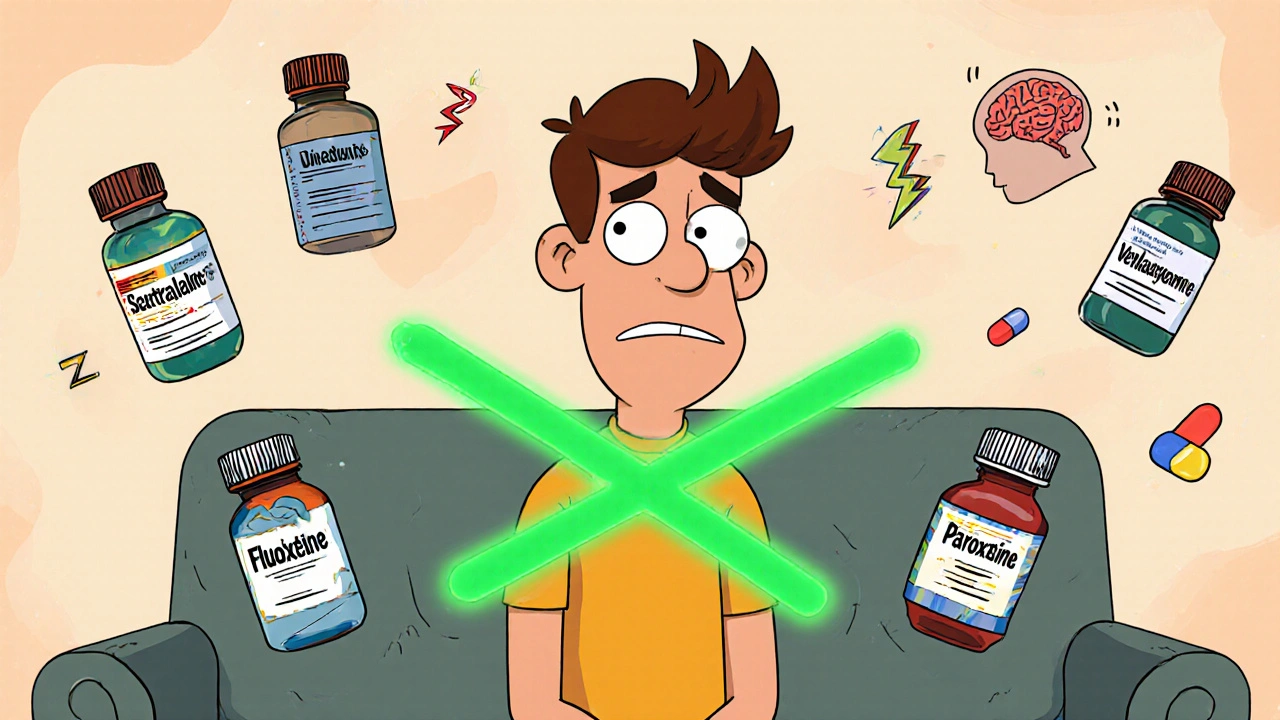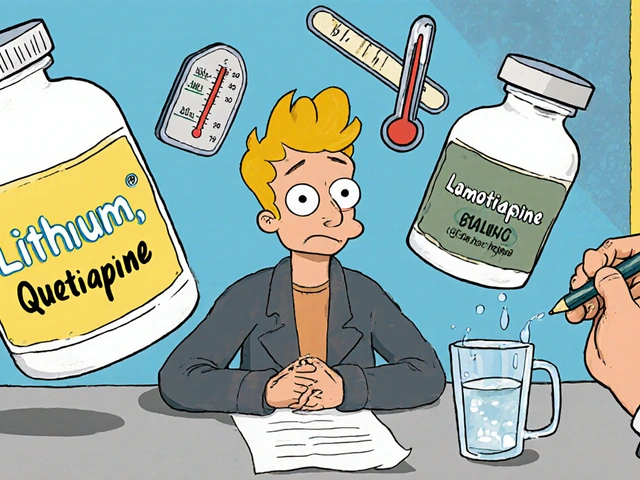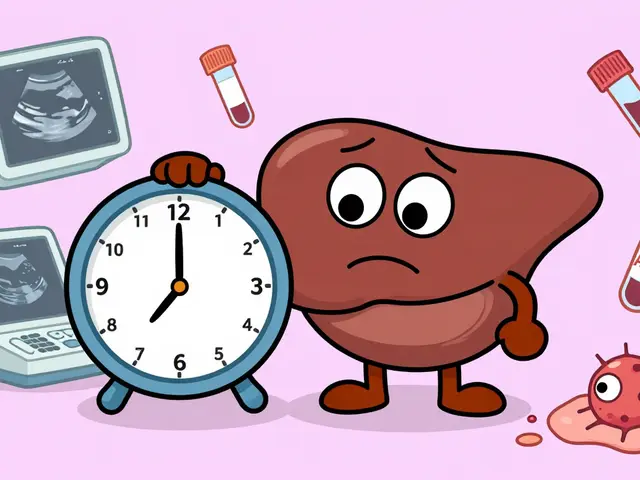Serotonin Syndrome: Causes, Risks, and What to Do If It Happens
When your body gets too much serotonin, a natural chemical that helps regulate mood, sleep, and digestion. Also known as serotonin toxicity, it’s not just a side effect—it’s a medical emergency that can turn deadly in hours. This isn’t rare. It happens when you mix medications that boost serotonin, like SSRIs, a common class of antidepressants that increase serotonin levels in the brain, with other drugs like migraine meds, painkillers, or even herbal supplements like St. John’s wort. Even switching from one antidepressant to another too fast can trigger it.
The body doesn’t handle excess serotonin well. Your nervous system goes into overdrive. You might feel agitated, dizzy, or break into a heavy sweat. Your heart races, muscles twitch, or you get shivering without being cold. In severe cases, your temperature spikes above 104°F, your blood pressure crashes, and you lose consciousness. It’s not the same as feeling a little off after starting a new pill. This is different—it’s a system-wide overload. And it’s often missed because doctors and patients alike assume it’s just flu, anxiety, or a bad reaction to something else. But if you’re on an antidepressant and start feeling this way after adding a new medicine or changing your dose, don’t wait. Get help immediately.
Most cases happen because of drug combinations people don’t realize are risky. A common example? Taking an SSRI like sertraline with tramadol for pain. Or mixing an SNRI like venlafaxine with dextromethorphan from a cough syrup. Even over-the-counter cold meds can be dangerous if you’re already on an antidepressant. The risk isn’t just about high doses—it’s about stacking serotonin boosters, even at normal levels. You don’t need to be taking huge amounts. Just two or three that act in the same way can push you over the edge.
What makes this even trickier is that some people think if they’ve been on the same meds for months, they’re safe. But serotonin syndrome can hit suddenly—even after years of stable use—when a new drug is added. It’s not about how long you’ve been on something. It’s about what you’re adding to it. And it’s not just prescription drugs. Some supplements, like tryptophan or 5-HTP, can also trigger it. If you’re on any antidepressant, talk to your doctor before trying anything new, even if it’s labeled "natural."
The good news? If caught early, serotonin syndrome is treatable. Stopping the offending drugs, getting fluids, and sometimes using a specific antidote can reverse it quickly. But ignoring it? That’s when things turn critical. You won’t always know it’s happening until it’s too late. That’s why knowing the signs matters more than you think.
Below, you’ll find real stories and practical guides from people who’ve dealt with this—whether it was a bad drug mix, a missed warning, or a slow taper that went wrong. You’ll learn how to spot the red flags before it escalates, which meds are most likely to cause it, and how to talk to your pharmacist or doctor so you stay safe. This isn’t theoretical. These are the exact issues covered in the posts ahead—because people need to know this before it happens to them.




